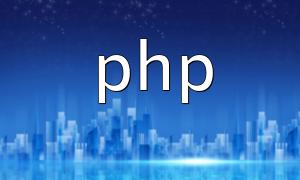Uninstalling PHPCMS requires a series of steps. Here is a detailed guide to help you successfully remove the PHPCMS system and its related files.
Before proceeding with the uninstallation, you should back up your website's database and files to ensure that you can restore the data if needed. Backup is a crucial step in the uninstallation process to prevent data loss from accidental operations.
To avoid conflicts or unexpected issues during the uninstallation, you need to stop the web server that hosts PHPCMS. You can shut down the relevant service through the server management tools.
Next, navigate to the PHPCMS installation directory and delete the following folders:
These folders contain PHPCMS's cache, configuration, and data files. Deleting them will clear all associated files of PHPCMS.
Use a database management tool (such as phpMyAdmin) to delete the database created by PHPCMS. Be sure to back up your data before deleting it to avoid accidental data loss.
If you installed PHPCMS on a Windows system, you need to delete the following registry entry:
You can manually remove it using the Registry Editor or use a cleaning tool to help with the removal.
After completing the previous steps, restart the web server to ensure that the uninstallation takes effect and that any residual caches or settings are cleared.
Clearing the browser cache is an important step to ensure that old files do not interfere with new operations. Once you clear the cache, reload the page to make sure the uninstallation is fully effective.
By following the steps above, you can successfully uninstall PHPCMS. Each step is important, and be sure to back up your data before proceeding to prevent any loss of information.









